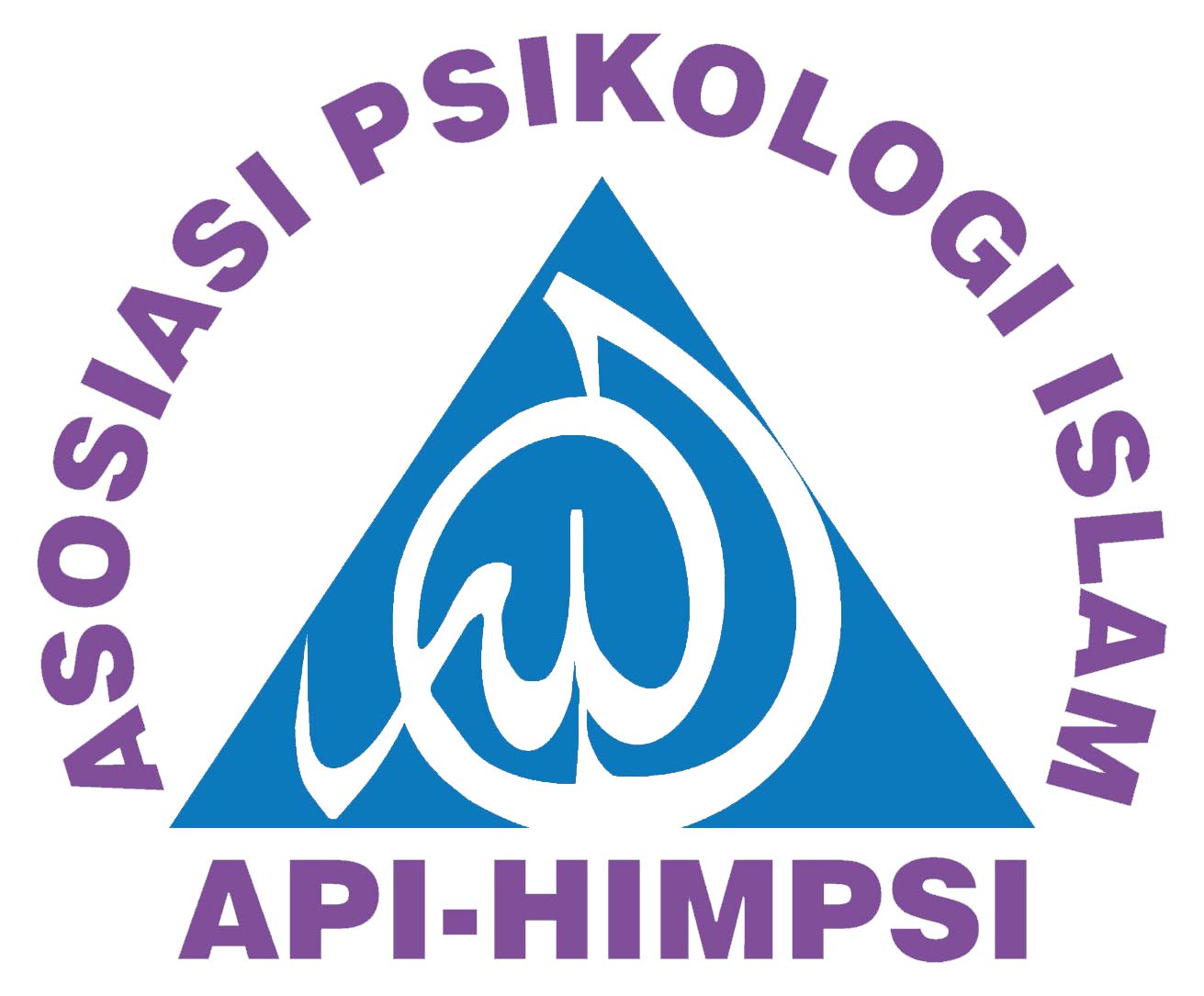Konstruksi Alat Ukur Kepemimpinan Spiritual dalam Keluarga
DOI:
https://doi.org/10.15575/jpib.v3i1.6526Keywords:
Conctruction of psychological measurement, Spiritual leadership, Head of family, Modification approachAbstract
References
Afsar, B., Badir, Y., & Kiani, U. S. (2016). Linking spiritual leadership and employee pro-environmental behavior: The influence of workplace spirituality, intrinsic motivation, and environmental passion. Journal of Environmental Psychology, 45, 79–88. https://doi.org/10.1016/j.jenvp.2015.11.011
Aiken, L. (1985). Three coefficients for analysing Reliability and Validity of rating. Educational and Psychological Measurement, 45, 131–142. https://doi.org/10.1177/07399863870092005
Augustiya, T., Nurislamiaty, Q., Al-fatoni, M. D., & Rachma, L. N. (2019). Hubungan orientasi karier dengan optimisme pada mahasiswa jurusan keagamaan UIN Sunan Gunung Djati Bandung. Jurnal Psikologi Islam Dan Budaya, 2(1), 31–42. https://doi.org/10.15575/jpib.v2i1.4014
Ayranci, E., & Semercioz, F. (2011). The Relationship between Spiritual Leadership and Issues of Spirituality and Religiosity: A Study of Top Turkish Managers. International Journal of Business and Management, 6(4). https://doi.org/10.5539/ijbm.v6n4p136
Azwar, S. (2015). Validitas dan Reliabilitas. Yogyakarta: Pustaka Belajar.
Bastaits, K., Pasteels, I., & Mortelmans, D. (2018). How do post-divorce paternal and maternal family trajectories relate to adolescents’ subjective well-being? Journal of Adolescence, 64(December 2016), 98–108. https://doi.org/10.1016/j.adolescence.2018.02.005
Benefiel, M. (2005). The second half of the journey: Spiritual leadership for organizational transformation. Leadership Quarterly, 16(5), 723–747. https://doi.org/10.1016/j.leaqua.2005.07.005
Chen, C. Y., & Li, C. I. (2013). Assessing the spiritual leadership effectiveness: The contribution of follower’s self-concept and preliminary tests for moderation of culture and managerial position. Leadership Quarterly, 24(1), 240–255. https://doi.org/10.1016/j.leaqua.2012.11.004
Doehring, C. (2019). Using spiritual care to alleviate religious, spiritual, and moral struggles arising from acute health crises. Ethics, Medicine and Public Health, 9, 68–74. https://doi.org/10.1016/j.jemep.2019.05.003
Fridayanti. (2015). Religiusitas, spritualitas dalam kajian psikologi dan urgensi perumusan religiusitas Islam. Psympathic : Jurnal Ilmiah Psikologi, 2(2). https://doi.org/10.15575/psy.v2i2.460
Fry, L. W. (2003). Toward a theory of spiritual leadership. Leadership Quarterly, 14(6), 693–727. https://doi.org/10.1016/j.leaqua.2003.09.001
Fry, L. W., Vitucci, S., & Cedillo, M. (2005). Spiritual leadership and army transformation: Theory, measurement, and establishing a baseline. Leadership Quarterly, 16(5), 835–862. https://doi.org/10.1016/j.leaqua.2005.07.012
Jaenudin, U., & Tahrir, T. (2019). Studi religiusitas, budaya Sunda, dan perilaku moral pada masyarakat Kabupaten Bandung. Jurnal Psikologi Islam Dan Budaya, 2(1), 1–8. https://doi.org/10.15575/jpib.v2i1.3445
Kardinah, N. (2009). Keluarga dan problematikanya menuju keluarga sakinah (Tinjauan dalam persfektif marrital psikologi). Psympathic : Jurnal Ilmiah Psikologi, 1(1), 109–120. https://doi.org/10.15575/psy.v1i1.2171
Kaya, A. (2015). The relationship between spiritual leadership and organizational citizenship behaviors: A research on school principals’ behaviors. Educational Sciences: Theory & Practice, 15(3), 597–606. https://doi.org/10.12738/estp.2015.3.1988
Krisharyuli, M., Himam, F., & Ramdani, Z. (2020). Ethical leadership: Conceptualization and measurement. Journal of Leadership in Organizations (Vol. 2). Retrieved from https://jurnal.ugm.ac.id/leadership
Mediawati, D., Arifin, B. S., & Supriyatin, T. (2012). Hubungan dukungan keluarga terhadap penyesuaian diri pada pasien psikotik resosialisasi di panti sosial bina laras phala martha Sukabumi. Psympathic : Jurnal Ilmiah Psikologi, 5(2), 602–615.
Polat, S. (2011). The level of faculty members’ spiritual leadership (SL) qualities display according to students in faculty of education. Procedia - Social and Behavioral Sciences, 15, 2033–2041. https://doi.org/10.1016/j.sbspro.2011.04.049
Ramdani, Z. (2018). Construction of academic integrity scale. International Journal of Research Studies in Psychology, 7(1), 87–97. https://doi.org/10.5861/ijrsp.2018.3003
Ramdani, Z., Supriyatin, T., & Susanti, S. (2018). Perumusan dan pengujian instrumen alat ukur kesabaran sebagai bentuk coping strategy. Jurnal Psikologi Islam Dan Budaya, 1(2), 97–106.
Royanulloh, R., & Komari, K. (2019). Bulan ramadan dan kebahagiaan seorang muslim. Jurnal Psikologi Islam Dan Budaya, 2(2), 51–62. https://doi.org/10.15575/jpib.v2i2.5587
Saad, M., See, T. P., Adil, M. A. M., & Kassim, N. M. (2015). Spiritual intelligence on leadership effectiveness and food-hygiene practices in public institutions. Procedia - Social and Behavioral Sciences, 201(February), 146–155. https://doi.org/10.1016/j.sbspro.2015.08.161
Salsabila, D. F., Rofifah, R., Natanael, Y., & Ramdani, Z. (2019). Uji validitas konstruk Indonesian-Psychological Measurement of Islamic Religiousness (I-PMIR). Jurnal Psikologi Islam Dan Budaya, 2(2), 1–10. https://doi.org/10.15575/jpib.v2i2.5494
Šilingienė, V., & Škėrienė, S. (2015). Expression of leaders’ spiritual intelligence in a context of service organizations: A gender approach. Procedia - Social and Behavioral Sciences, 213, 758–763. https://doi.org/10.1016/j.sbspro.2015.11.467
Smith-Greenaway, E., & Clark, S. (2017). Variation in the link between parental divorce and children’s health disadvantage in low and high divorce settings. SSM - Population Health, 3, 473–486. https://doi.org/10.1016/j.ssmph.2017.04.004
Stokkebekk, J., Iversen, A. C., Hollekim, R., & Ness, O. (2019). “Keeping balanceâ€, “Keeping distance†and “Keeping on with lifeâ€: Child positions in divorced families with prolonged conflicts. Children and Youth Services Review, 102(January), 108–119. https://doi.org/10.1016/j.childyouth.2019.04.021
Sumanty, D., Sudirman, D., & Puspasari, D. (2018). Hubungan religiusitas dengan citra tubuh pada wanita dewasa awal. Jurnal Psikologi Islam Dan Budaya, 1(1), 9. https://doi.org/10.15575/jpib.v1i1.2076
Tkaczynski, A., & Arli, D. (2018). Religious tourism and spiritual leadership development: Christian leadership conferences. Journal of Hospitality and Tourism Management, 35, 75–84. https://doi.org/10.1016/j.jhtm.2018.03.004
Weinberg, F. J., & Locander, W. B. (2014). Advancing workplace spiritual development: A dyadic mentoring approach. Leadership Quarterly, 25(2), 391–408. https://doi.org/10.1016/j.leaqua.2013.10.009
Wita, M. M. N. A., Khasanah, A. N., & Rahayu, M. S. (2018). Tipe parental mediation dan adiksi internet siswa kelas V SD X Bandung. Psympathic : Jurnal Ilmiah Psikologi, 5(2), 221–230. https://doi.org/10.15575/psy.v5i2.3310
Downloads
Additional Files
Published
Issue
Section
Citation Check
License
Authors who publish with this journal agree to the following terms:
- Authors retain copyright and grant the journal right of first publication with the work simultaneously licensed under a Creative Commons Attribution License that allows others to share the work with an acknowledgment of the work's authorship and initial publication in this journal.
- Authors are able to enter into separate, additional contractual arrangements for the non-exclusive distribution of the journal's published version of the work (e.g., post it to an institutional repository or publish it in a book), with an acknowledgment of its initial publication in this journal.
- Authors are permitted and encouraged to post their work online (e.g., in institutional repositories or on their website) prior to and during the submission process, as it can lead to productive exchanges, as well as earlier and greater citation of published work (See The Effect of Open Access).






